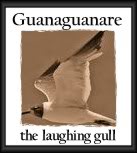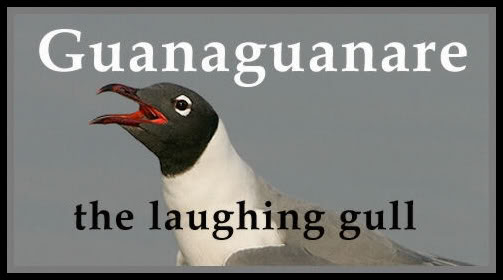...Sometimes Unapologetically Indignant.
I am pleased to announce that Maximilian Forte on his blog "Zero Anthropology" has been producing a series of blog posts on the topic of Dignity . They include:
1. Keep Your Money: A Series on Dignity.
2. A Tear for Africa: Humanitarian Abduction and Reduction.With a conclusion featuring Singing Sandra's "Die With My Dignity" this post begins the exploration of the concept of dignity. It notes the absence of the idea as a concept in the works of most anthropologists, which is unfortunate because the writer believes that "the absence or the silencing of the idea has serious import for how we think others think about the world, and for how we ought to think about the world, while using the idea/concept as a way of questioning the preferred constructs of the institutionalized, liberal elite..." The writer goes on to explore two problems encountered when trying to explore the concept of dignity - the problem of Eurocentrism and his view that there is "no sharp dividing line between “Europe” or the “West” and the nations that either will merely be mentioned in the series, or from which examples and insights are drawn: Jamaica, Trinidad and Tobago, Libya, South Africa, and Zimbabwe."
3. Zimbabwe: “Keep your money, keep your power, and keep away from us.”"Helpless, pleading, wanting, needing, small, weak, staring at you, black–this is the anti-bogeyman invented by Western humanitarianism, what passes as morality in the ideology of empire (yet again). Past the time of a London Missionary Society, we now have the Responsibility to Protect (R2P), the moral dogma of a white, western elite that projects its abusive notion of “protection” everywhere it is not wanted." In this post the writer examines this imperialist impulse to bring dignity to the undignified by his exploration of issues like international adoption [with the focus on black children] as abduction, African poverty pornography, anthropology's continuing fixation with those who need fixing and foreign aid as local degradation.
4. Still Standing: Zimbabwe.Here the writer uses the example of Zimbabwe's defiance to illustrate the exercise of dignity - national dignity. A strong leader with a clear vision for his country and one that does not necessarily involve following a script handed to him by outside forces, is determined to see his country attain de facto independence with dignity. It is no surprise that he must continue to run the gauntlet of neocolonialism's grim claw, economic sanctions, negative press - especially by US mainstream media, and internal treason.
The writer concludes, "One expects one’s Prime Minister to fight for one’s country, in other words, one expects dignity." In President Mugabe's own words, “...the legacy I want to leave behind is Zimbabwe without outside interference.”
..............................................................................................................................The focus on Zimbabwe continues and in this post we are taken beyond the hypocritical and often self-serving international outcry most often associated with this country's efforts to pull itself up and offered insights into a few issues including Zimbabwe’s successful agrarian reform program which was launched to ensure that the dignity of black Zimbabweans was asserted. In a country where agriculture employed 70% of the population. the 2007 Indigenisation and Economic Empowerment Act supports the logic of the conviction that "democracy and political stability can therefore not be sustained in a situation where resources remain concentrated in the hands of a few non-indigenous people”. Nor can dignity be sustained where foreign settlers are presumed to be inherently or legally entitled to more than their fair share."

A Note From The Gull
Thank you, Maximilian Forte, for these informative and thought provoking posts. I am thinking that these should be essential reading for my fellow Trinbagonians as we approach the date of our 50th Anniversary of Independence. National dignity is not something that we talk a lot about in Trinidad and Tobago. We tend to limit our appreciation of dignity to the individual human being but I think that patriots are the ones who see it most clearly at the level of the nation, not only in how we present ourselves or are perceived on the international stage but more importantly in my estimation, in how our country stands up for us locally. Some time ago, activist Ishmael Samad made a very interesting statement in the court where he was eventually to be found guilty and punished for unlawfully and maliciously damaging the gate to John Calder Hart’s home on April 14, 2010.
By way of explanation for his actions on that day, Ishmael Samad said that, “He [John Calder Hart] committed the most heinous, brazen and disgraceful crime of the century..." And while he said he [Ishmael Samad] would never perpetrate such a crime again, Samad said the act would leave a reminder of one man who stood for a cause. “At least the last thing Calder Hart would remember is someone breaking down his gate to arrest him before he fled the country,” Samad said. “I broke the law, but all I was trying to do was save the dignity and respect of the country.”
By way of explanation for his actions on that day, Ishmael Samad said that, “He [John Calder Hart] committed the most heinous, brazen and disgraceful crime of the century..." And while he said he [Ishmael Samad] would never perpetrate such a crime again, Samad said the act would leave a reminder of one man who stood for a cause. “At least the last thing Calder Hart would remember is someone breaking down his gate to arrest him before he fled the country,” Samad said. “I broke the law, but all I was trying to do was save the dignity and respect of the country.”
Ishmael Samad: "I broke the law,
but all I was trying to do was
save the dignity and respect of the country."
but all I was trying to do was
save the dignity and respect of the country."
Is Ishmael's anger the sort to which Maximilian refers when he says, "...anger is also indignation, and it is an expression rooted in dignity." ?
"Patria est communis omnium parens" - Our native land is the common parent of us all. Keep it beautiful, make it even more so."Dignity has become complex now for having crossed the lines between the personal, the national, and the geopolitical, where we begin to mix individuals with collectivities, and where one speaks for the other. Dignity also crosses the lines of exchange value and emotional self-affirmation. U.S. national security strategy documents seem to essentially equate dignity with having modern conveniences and cash–in other words, an instumentalist or transactionalist view of dignity that sits well with capitalist values, and makes for easy policy options. In addition to instrumentalizing dignity, U.S. policy documents Westernize it, by reducing dignity to the property of the individual. However, ideas such as national dignity, and black dignity, speak of dignity as the possession of large collectivities–nor are they reducible to pragmatic calculations and seeking monetary gain. “Keep your money”–the lead idea in two of the previous essays, expressly rebels against pragmatism, cash reductions of dignity, and counters dignity as manipulated by men exploiting women, adults shopping for children, or superpowers trying to intimidate barely post-colonial nations. If U.S. policy documents speak of dignity, it is out of recognition that this concept matters to many, hence best for the U.S. to try to produce the representations that it hopes will stick and to define the field for everyone else. One reason why dignity matters so much, as a concept, is that it goes beyond freedom and rights and thus there is a risk for the West that some of the cherished concepts in its intellectual armory, used to wage international propaganda, could evaporate back into the thin air from which they came.
Rights–or more accurately, human rights–tend to privilege the individual, which is one of the reasons for long-standing and widespread criticisms of the idea as a Eurocentric and capitalist one. Freedom, especially in the pronouncements of U.S. political leaders, clearly means free markets, free trade, free flows of capital, and it implies an equivalent system of government where influence, access, and votes are bought and sold, and marshaled by competing groups of entrepreneurs organized in self-serving entities we know as political parties.
Dignity, however, does not imply that any one system of political organization is better or more needed than another. Dignity can exist and thrive in a multi-party state, in a one-party state, in a no-party state, and in a non-state society. No ruler, or form of rule, can take away someone’s dignity–dignity can be denied, suppressed, or ignored, but not taken away, and that makes it quite distinct from either rights or freedom. Moreover, the roots of dignity are fundamentally local, and given the very diverse ways in which it can be perceived and valued, it cannot easily be codified in legal instruments at the international level. In other words, don’t expect a United Nations Charter on the Dignity of Peoples anytime soon. Dignity has no universally agreed upon list of traits–so the concept defies measurement, and it escapes positivism, capitalism, and Western humanitarianism.
Imperialist logics are also defied by dignity, a term that often comes out in the open as a rallying cry in resistance and rebellion. When dignity means a man defending his land, with a pistol in his hand, then dignity can pose an obstacle to imperialist denials of self-determination (another concept which has been very problematic for the United Nations which has tried to co-opt it on the one hand, while denying it on the other).
Finally here, it is also interesting to note that dignity is often symbolized in English with a certain body language: getting up, standing up, staying up, keeping one’s head high, standing straight, lifting up, being uplifted, arising, etc. Certain mental states are also associated in some cases with dignity: consciousness, realization, recognition, and awakening." SOURCE: Still standing: Zimbabwe - By Maximilian Forte
Blessed is all of creation
Blessed be my beautiful people
Blessed be the day of our awakening
Blessed is my country
Blessed are her patient hills.
Mweh ka allay!
Guanaguanare













2 comments:
Thanks so much Guanaguanare!
This is an excellent summary, and much better than the kind I attempt when trying to disseminate the individual essays. You focused on the most important parts of each essay.
Also, thanks for enlightening me about a case in Trinidad that I previously knew nothing about. I salute the dignity of Ishmael Samad, not to mention his courage and honour.
Many thanks again my dear friend.
Always my pleasure, Max.
Blessings
Post a Comment